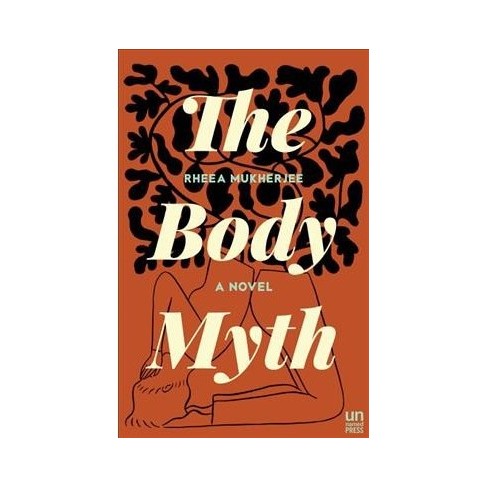
“The Fragility of Health and Friendship in Rheea Mukherjee’s The Body Myth” by Emily Behnke
Mira, a widowed teacher living alone in a bustling modern city in India, witnesses a beautiful woman having a seizure in a park and rushes to help. Soon after, she develops an intense and volatile friendship with the woman, Sara, who suffers from a variety of symptoms and ailments with no conclusive diagnosis, and her husband Rahil, who acts as her primary caretaker. As the trio endures the ebb and flow of Sara’s physical and mental health, Mira’s own emotional stability wobbles, ultimately causing each friend to evaluate Mira’s role within Sara and Rahil’s marriage.
Rheea Mukherjee writes with fluidity and lyricism, capturing this singular story of a complicated alternative relationship with vivid clarity. Her protagonist, Mira, is equal parts sardonic and charming; she uses what she has learned in a personal study of the French existentialists during a prolonged stay in a mental hospital to navigate life in the wake of the loss of her husband, turning to this instead of religious text or thought for a moral compass. Throughout the novel, Mukherjee blends philosophical thought with biting reality and modern technology. Sprinkled between references to Camus and Foucault are mentions of Uber, Youtube, and Facebook, which helps to situate this often surreal, inward-looking story against a recognizable 21st century backdrop.
The most striking aspect of this novel is Mukherjee’s sustained exploration of women’s health, both in terms of physical ailment and psychosomatic experience. Sara’s physical body, and by extension her mind, competes for the center stage with Mira’s fragile emotional stability. Each woman oscillates between free admittance and stilted silence in regard to how they feel, as well as emotional availability, empathy, and cold indifference. As the narrative progresses and their friendship deteriorates and rebuilds, the line between physical and mental, as well as health and sickness, begins to blur. This leads both women to seek out different, unconventional forms of treatment that both help and hurt those around them. By the end, one of the novels most important points, perhaps, becomes clear: continuously confronting the roots and causes of physical and mental illness is as important as treatment is.
Through unique insights, wit, and philosophy, Rheea Mukherjee’s The Body Myth takes a deep look into issues of the freedom to choose, emotional availability and capacity, and what it means to build a friendship when each day is a struggle to feel truly well.
© LIT Magazine Issue #33, 2019



